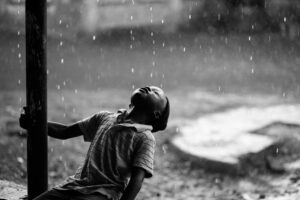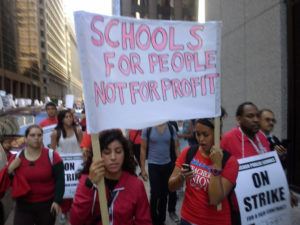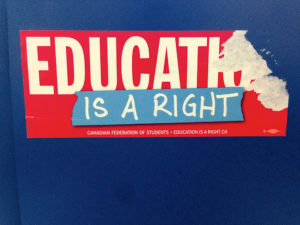August 15, 2016; Christian Science Monitor
When we think about the educational marketplace, traditional public schools, charter schools, and private schools come to mind. But for a growing number of parents, the best option is “none of the above.” They prefer to reject schools entirely and assume personal responsibility for teaching their children. For these parents, the correct educational choice is homeschooling. As the new school year begins, more than 2 million children will find their bedroom and schoolroom under the same roof.
Each homeschooling parent has weighed the options in their community using a very personal yardstick and concluded it was better to take on the task of teaching their children. As Donna Ford, a professor at Vanderbilt’s Peabody College of Education, described the process: “Those who’ve chosen to take their kids out of public schools have said, ‘I don’t trust public schools, public education, I don’t trust policies and procedures, I don’t trust tests, I don’t trust educational institutions to help my child be all he or she can be.’”
Children of color face a well-documented lack of access to gifted and enriched educational opportunities. Cheryl Fields-Smith, a professor of education at the University of Georgia, reports that she has seen “instances where middle-class black parents, whose extra social capital would normally enable them to advocate effectively for their children, have a harder time ‘unlocking those benefits’…trying to get their children into the gifted programs…because when you’re not white, all those things are challenging.”
Since 2003, the number of African American children being homeschooled in the United States has doubled to around 220,000, according to the National Home Education Research Institute (NHERI). This article in the Christian Science Monitor interviews a number of parents and finds within their reasons for homeschooling a distrust of the public schools in terms of embedded racism—in curricula, in affording equal opportunity, in the well documented over-disciplining of black children.
Nikita Bush leads a growing homeschooling co-op near Atlanta’s historic West End neighborhood. Despite having a teaching background and coming from a family of educators, she believes that the risks of public schooling are too great for many children of color.
Sign up for our free newsletters
Subscribe to NPQ's newsletters to have our top stories delivered directly to your inbox.
By signing up, you agree to our privacy policy and terms of use, and to receive messages from NPQ and our partners.
“People are starting to realize that public education in America was designed for the masses of poor, and its intent has been to trap poor people into being workers and servants. If you don’t want that for your children, then you look for something else.”
Dr. Brian Ray, who founded NHERI, has written a paper on black parents who homeschool and their children’s educational and social outcomes. Speaking of the parents, Ray says, “They’ve been told for 20, 30, 40 years that public schools will get better for black kids, but black kids are still at the bottom of the totem pole in terms of academic achievement, and black families know it.”
Although Ray acknowledges more research is needed, in his study, homeschooled students scored between 23 and 42 percentile points above public school students in math, reading, and English, and scored above average “on measures of social, emotional, and psychological development.”
In many states, homeschooling parents tend to be dual-parent and middle- or upper-income, but in Georgia, which has no restriction on parents teaching each other’s children, teaching co-ops have taken root, allowing single black mothers to participate even while holding down a job. Queen Taese of Lithonia, Georgia, has seven children, all of whom have been homeschooled. She says, “Some of the most amazing inventions come forward out of a need…and with the way public education is going, there was an inevitable need.”
While the symptoms differ across the spectrum of homeschoolers, all share the conclusion that the public schools cannot meet their personal requirements. In their choice, we can see how difficult the challenge is for school leaders to compete in a marketplace and meet every “customer’s” expectations. For their children, choosing the home as the best alternative is the only choice. But for us collectively, there is a cost if education is narrowcast. Where is community built? How is democracy learned?— Martin Levine and Ruth McCambridge













